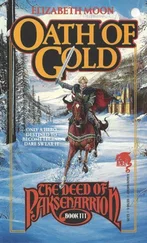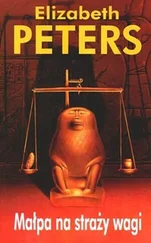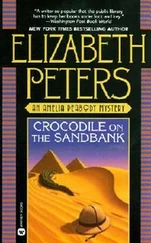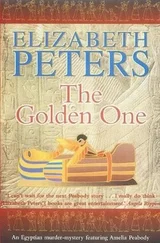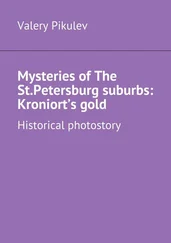“Uh—yes, that’s right.”
“What is his name, this man?”
“Hoffman.”
“Hoffman…Yes, there is something familiar….”
I thought he was showing off. If I had known he was telling the simple truth, I’d have changed the subject even faster than I did.
Schmidt wouldn’t go home. After polite hints had failed, I told him point-blank I was tired and wanted to hit the sack. He waved my complaint aside. “It is a holiday tomorrow; you can sleep late.”
“What holiday?”
“I have declared it,” said Schmidt, giggling. “For me. I must do my Christmas shopping. I am the director; I can make a holiday when I want. I make it for you, too, if you are nice. We will go to shop at the Kristkindlmarkt.”
“Depends on the weather,” I said. “I feel a little snuffly tonight; the cold I mentioned—”
“Fresh air is good for a cold,” said Schmidt. “Now let us open a bottle of wine and look at more photographs. Where are the ones you took of me at the Oktoberfest?”
I had not intended to take pictures of Schmidt at the Oktoberfest. I had intended to get an overall view of that giddiest and most vulgar of Munich holidays, not only for my own scrapbook, but to send home in the hope it would encourage my brother Bob to pay me a visit. Since my mother would see the pictures too, a certain amount of discretion was necessary; the snapshots had to be vulgar enough to entice Bob and restrained enough not to scandalize my mother. I never sent the photos. Schmidt was in every damned one of them. I believe his aim was to demonstrate the variety of things that can be done with a stein of beer—in addition, of course, to drinking from it.
I did not open a bottle of wine. At midnight Schmidt switched from coffee to Coke and demanded more snapshots.
At twelve-fifteen the telephone rang. This prompted a ribald comment from Schmidt, which I ignored. Some of my friends have no idea of time, but I had a premonition about the identity of this caller; and I was right.
“I understand you telephoned earlier,” said John brightly.
“I didn’t leave a message.”
“My heart told me it was you.”
“Your heart, and the fact that you never bothered to tell me—” I bit my lip. The cold fury in my voice had aroused the interest of my inquisitive boss; he turned to stare and I moderated my tone. “So what’s new?”
“Nothing.”
“Nothing?”
“ Nihil, niente, nichts . No rumors, no information, no news. If the subject we discussed earlier has aroused interest, it is not in the quarters with which I am—was—familiar.”
“You’re sure?”
“Absolutely.”
“It didn’t take you long.”
“Efficiency is my most admirable characteristic.”
“You have so few of them.”
A chuckle from John and a more intense stare from Schmidt reminded me to control my temper and my tongue.
“My, my, what a sour mood we’re in,” said the jeering voice at the other end of the line. “I didn’t expect gratitude, but you ought to be relieved at the absence of activity.”
Since I could not think of a reply that would not further arouse Schmidt’s suspicions, I remained silent. After a moment, John said, “Do forgive me, I neglected to inquire whether you had a guest.”
“I do.”
“Tony? Dieter? Tom, Dick—”
“Schmidt,” I said between my teeth.
“Who is it?” Schmidt demanded. “Is it someone I know? Does he wish to speak with me?”
“Shut up, Schmidt,” I said.
“Perhaps I had better ask leading questions,” John said.
“Why bother?”
“Tit for tat. Have there been any new developments?”
“No.”
“Hmmm,” said John.
“You said you weren’t interested.”
“Not under any circumstances whatever. I cannot conceive of any contingency that would persuade me.”
“Then you have no need to know.”
“Er—quite. Look here, suppose I ring you tomorrow. A late report may yet come in.”
“Who was that?” Schmidt demanded as I hung up.
“A friend of mine.”
“You did not sound very friendly,” said Schmidt.
Schmidt finally left at about one-thirty. As I pushed him out into the night he called, “I will telephone you at nine o’clock. We must get an early start.”
I nodded agreeably. At nine the next morning I expected to be halfway to Garmisch.
Four
AT NINE O’CLOCK I WAS JUST LEAVING MUNICH. I had overslept. I figured Schmidt had probably done the same, so I wasn’t worried about his following me. I was worried about two other people.
I lost more time taking a roundabout route through the suburbs instead of heading directly for the autobahn. The sun was trying to break through clustering clouds, but the side streets were slick with packed snow. I had to concentrate on my driving and try, at the same time, to keep an eye on the rearview mirror.
I didn’t expect to have any difficulty spotting Dieter. He was such a ham he wouldn’t be able to resist some silly trick. Having observed no bright purple Beetles painted with vulgar mottoes (Dieter’s last-owned car) or vehicles driven by gorillas or mummies, I turned onto the autobahn and put my foot down. The suggested speed limit is 130 kilometers per hour, but nobody pays much attention to it; I got in the (comparatively) slow lane and gave myself up to introspection.
Painful introspection. I wasn’t too pleased with myself. There is nothing wrong with having a positive self-image, but when self-esteem blossoms into conceit, it is apt to cloud one’s judgment.
Whether the photograph was a hoax or a swindle or a sales pitch, it was reasonable to assume the sender would not limit himself to a single sucker. Until the previous day, I hadn’t been able to pinpoint a particular group of prospects; but I should have made some phone calls to colleagues and asked whether they had received anything unusual in the mail.
On the other hand, nobody had telephoned me either. That made me feel a little less culpable. Either I was the only one Hoffman had contacted or the others were being devious—like me.
Schmidt it was who said it: “If there is the slightest chance…” The acquisition of the gold of Troy would be the museum coup of the century. Well, maybe not the century—there have been others—but a coup of mythical proportions. We’re no nobler than anybody else. We talk about cooperation and mutual assistance in the lofty name of scholarship, but let some prize come on the market and we’re in the arena with knives swinging. Competition stops short of assassination, but not by much. I could tell you some stories….
It was hard to avoid the conclusion that Hoffman had communicated with the others. They might even have information I lacked—a return address that had not been obliterated, a note or covering letter of which I had been deprived by Gerda’s interfering nosiness. They were behaving precisely as I would have expected if such a contingency had occurred.
Dieter would be intrigued and amused, and perfectly willing to spend a few days on a possible wild-goose chase, so long as the geese were nesting in one of his favorite vacation spots. Tony would call me on some pretense and wait to see if I would mention the peculiar photograph I had received from that dear old gentleman at the Gasthaus Hexenhut. My failure to do so would persuade him I was up to my old tricks, trying to track down a prize without cutting him in on the deal. Our first treasure hunt had begun with a challenge: “I’m smarter than you are and I’ll prove it.” I had no reason to suppose he had become any less competitive.
Jan was an East German. My vague notions of satellite politics had convinced me that half the people in Eastern Europe worked for the KGB, if that’s what they call it these days. He would have a stronger motive than any of us to locate the gold. If the Soviets didn’t have it, their poor little feelings must have been badly wounded by the suspicions of the world; it would be a nice publicity ploy for them to rescue it and return it—to Jan’s museum, where else?
Читать дальше

